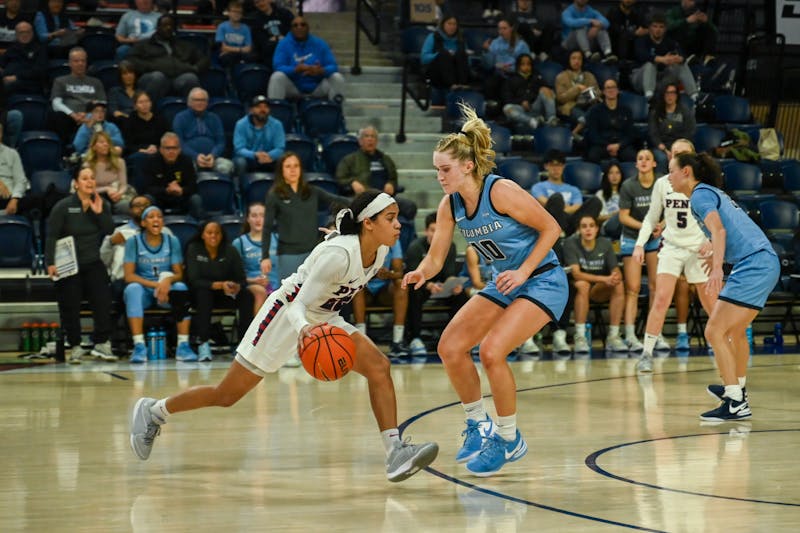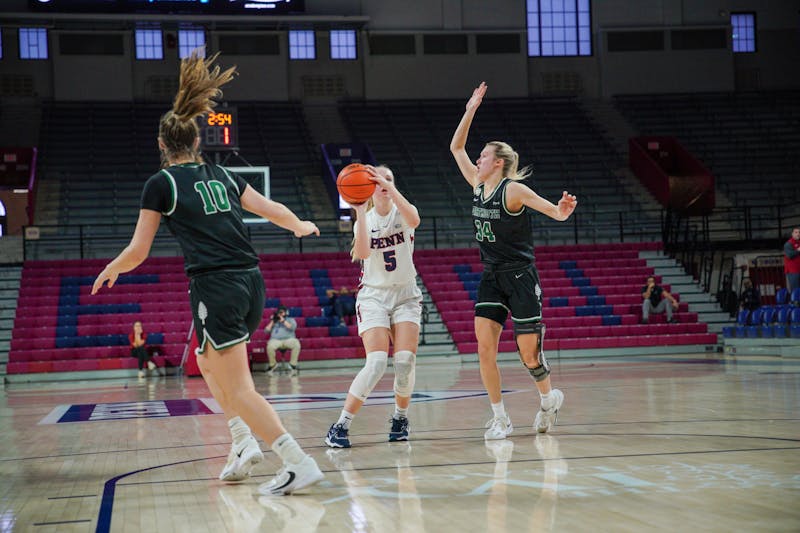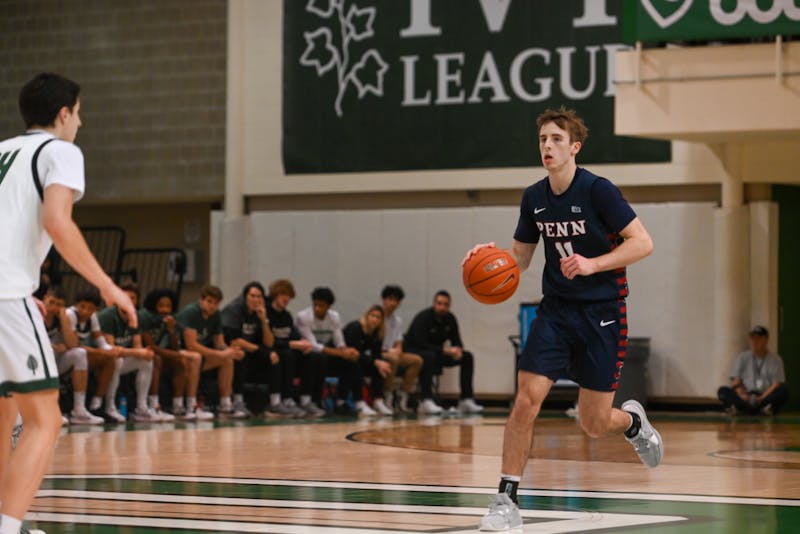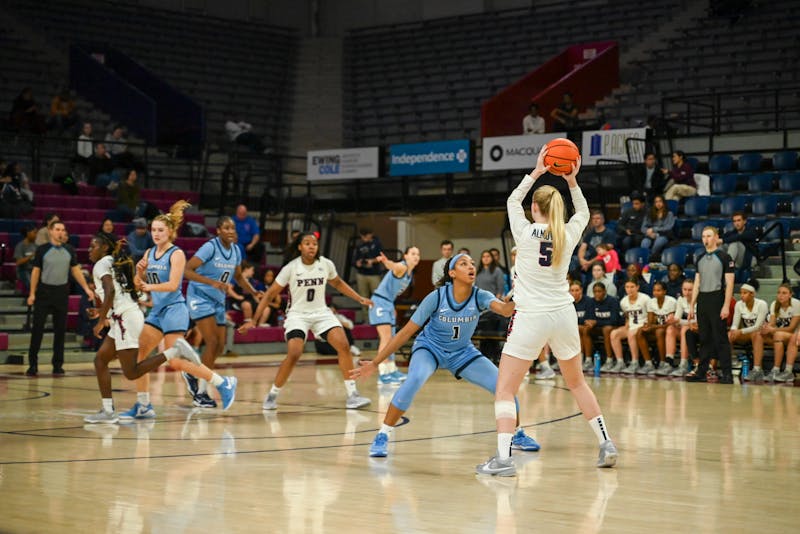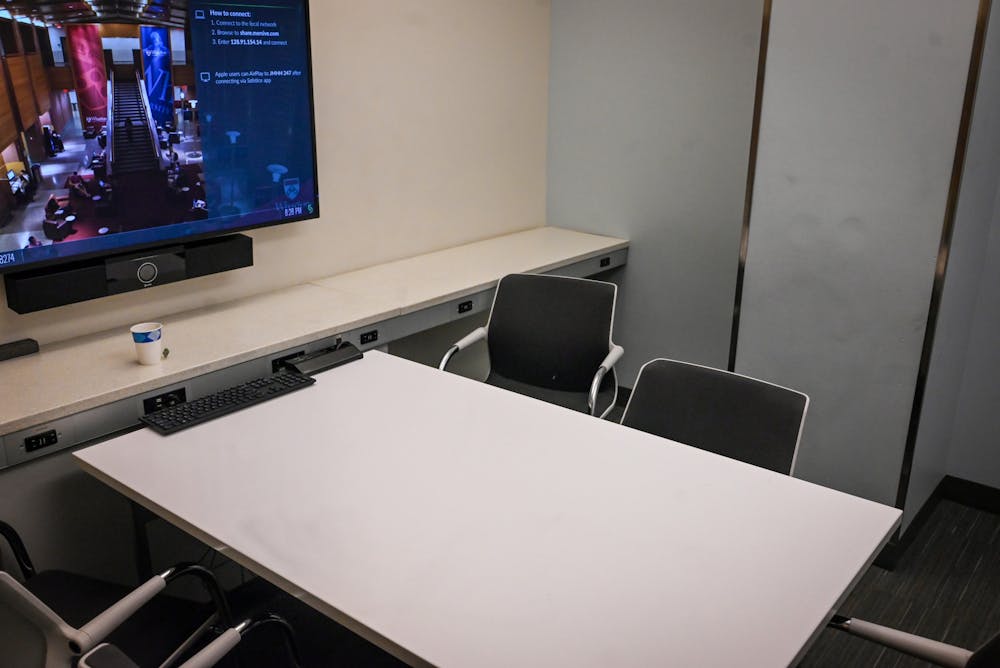
Senior Columnist Diya Choksey looks into GSR reservations and its connection with deeper financial and social systems that affect students at Penn.
Credit: William BartocWhen I first set foot in Huntsman Hall, it was love at first sight. And no, I’m not talking about a six-foot finance bro. It was the group study rooms: sleek, glass-walled rooms equipped with whiteboards, projectors, and just enough see-through prestige to make you feel (or at least look) like you are doing something important.
For those unfamiliar, GSRs are some of the most coveted study spaces on campus. Unlike Fisher Fine Arts Library or Van Pelt-Dietrich Library, where a single cough can earn you death stares, GSRs offer the rarest academic luxury: a reserved place where you can talk, eat, and even — shockingly — breathe through the early hours of the morning.
But my love was unrequited. Because as soon as I tried to book one, I was met with a blunt, soul-crushing reminder of my lack of Wharton-ness:
“Error. You need to have a Wharton pennkey to access Wharton GSRs.”
The Wharton School boasts nearly 60 GSRs in Huntsman Hall, plus even more in the Academic Research Building. The School of Engineering and Applied Science recently unveiled state-of-the-art study spaces in Amy Gutmann Hall, exclusive to Engineering students. And the College of Arts and Sciences? Despite being Penn’s largest undergraduate school, it has no dedicated GSRs. The only ones available to the College are managed by Penn Libraries — open to all schools, extremely limited, and almost never free.
At first, the solution seemed obvious: The College needs more GSRs. We just received a hefty Vagelos donation — why not use it to create exclusive study spaces too?
But then I realized: Would building more walls actually fix this issue? Or does it go deeper?
Penn prides itself on interdisciplinary collaboration. It boasts of inter-school minors, research opportunities, and clubs that blur academic lines. In theory, a Penn student isn’t confined by school boundaries. In practice, we are.
It starts with the little things. A College student finishes a marketing class in Huntsman but has nowhere to stay and work. A finance major takes a computer science class in the Towne Building, only to retreat immediately to a Wharton building. These aren’t just logistical inconveniences. They shape who we meet, where we go, and the spontaneous moments that define our social circles and college experience.
The real issue is that this division isn’t just cultural, it’s structural. Penn’s schools operate as distinct financial entities. The 2024 Financial Report makes it clear that Wharton and the Engineering School attract more donor funding, translating into improved student resources. And sure, there’s some logic to that. Alumni naturally want to give back to the specific schools that shaped them.
But when funding disparities create vastly different student experiences, it raises a more serious question: Are we funding Penn or four separate Penns?
At the end of the day, whether you’re in the Engineering School, Wharton, the College, or the School of Nursing, you ultimately graduate with a Penn degree. And while your coursework might shape you, so do the people you meet, the perspectives you’re exposed to, the late-night conversations that challenge your worldview.
That’s precisely why donations to Penn shouldn’t be school-specific; they should be Penn-specific. Taxation works because it lifts the entire community, not just the wealthiest neighborhoods. Why shouldn’t the same principle apply here?
Perhaps restructuring Penn’s financial system will take time. But we can start small. We can stop thinking in silos. We can remove “exclusive” labels from study spaces. We can make interdisciplinary dual degrees more accessible. We can create shared academic resources that reflect Penn’s mission, not just its financial divisions.
Penn doesn’t need more (GSR) walls. It needs fewer institutional barriers.
DIYA CHOKSEY is a College first year studying cognitive science from Mumbai, India. Her email is dchoksey@sas.upenn.edu.
The Daily Pennsylvanian is an independent, student-run newspaper. Please consider making a donation to support the coverage that shapes the University. Your generosity ensures a future of strong journalism at Penn.
Donate







